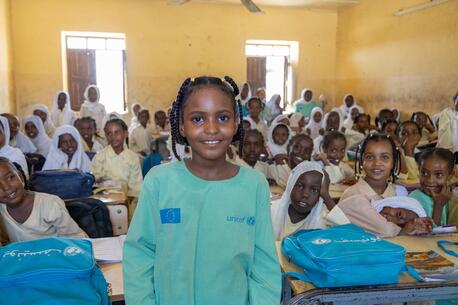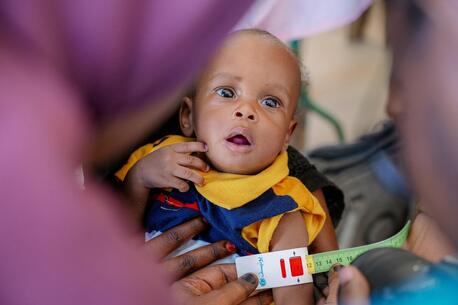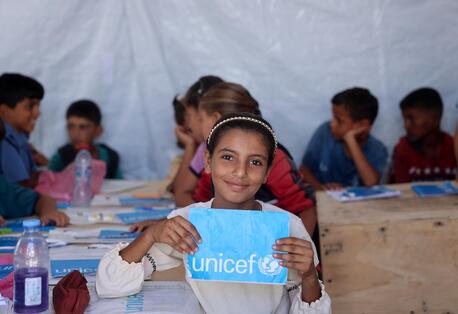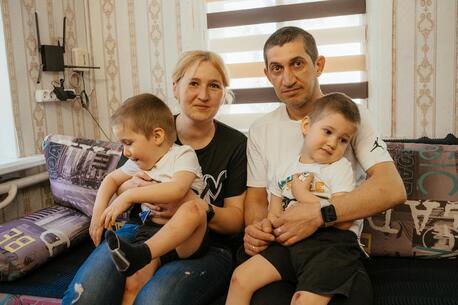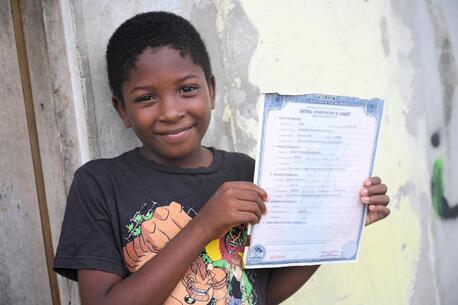
Birth Registration Essential for the Protection of Children’s Rights Everywhere
Globally, an estimated 230 million children under age 5 are without a birth certificate and at risk of missing out on critical services and protection. UNICEF works with governments worldwide to improve birth registration rates to ensure that every child is counted.
Helping countries improve birth registration as a basic form of protection
While birth registration is practically universal in most high-income countries, the same can’t be said for low- and middle-income countries.
Globally, an estimated 230 million children under age 5 do not have a birth certificate. When lacking legal proof of identify, a child becomes invisible — and vulnerable to various threats to their safety and well-being.
UNICEF has long worked with governments to improve birth registration rates as a protection measure.
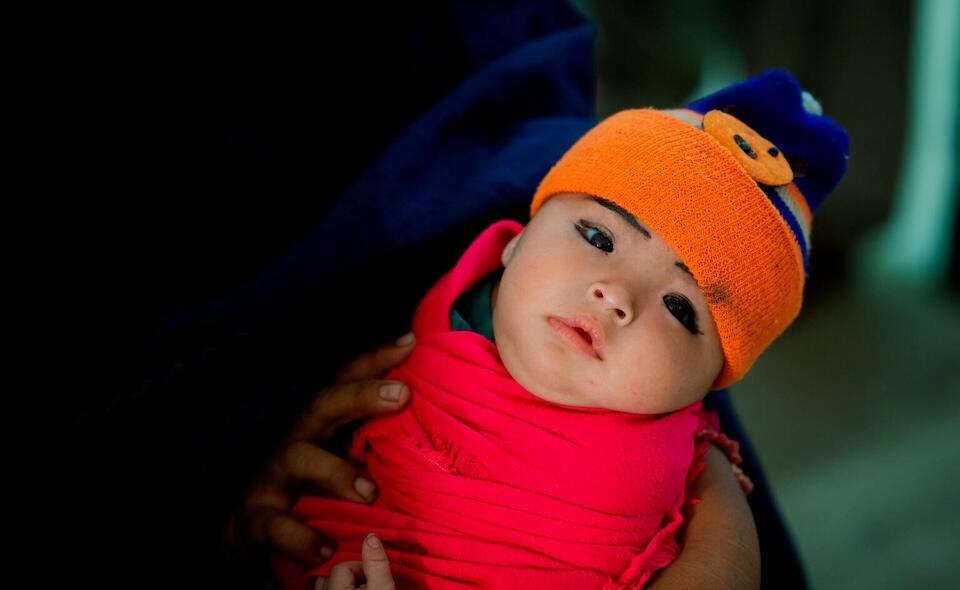
What is birth registration?
Birth registration – or the process of recording a child’s birth — is a fundamental human right, recognized as such under the Convention on the Rights of the Child.
It provides a permanent, official and legal record of a child’s existence and identity. At a minimum, birth registration establishes a record of where a child was born and who the child’s parents are, officially logging the birth with a government authority.
This information is required for a child to receive a birth certificate — a paper issued by the state to the parent or caregiver, confirming that the registration occurred and serving as legal proof of the child’s identity.
Ideally, birth registrations and birth certificates should go hand in hand, but that’s not always the case. A child might be registered, but never receive a birth certificate.
On average, 1 in 4 children under age 5 worldwide — an estimated 166 million — are not registered, while an estimated 230 million children across the globe do not have a birth certificate.
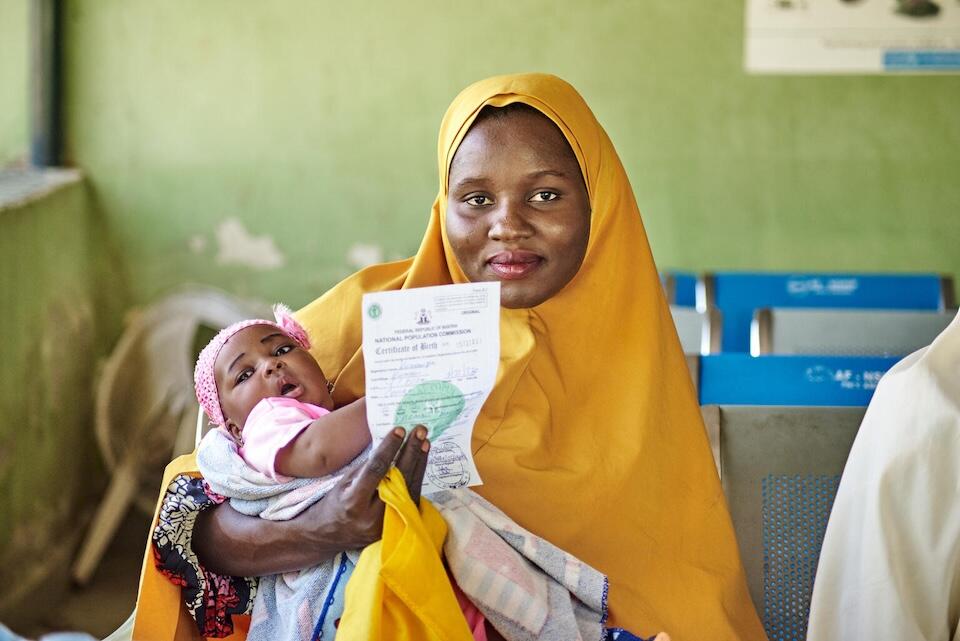
Why is it important for all children to have legal proof of identity?
Birth registration and birth certificates are the first line of defense in child protection. Without a record and certificate of their birth, children are invisible to their governments and vulnerable to exclusion from health care, education, protection and other basic services.
Children without proof of identity can be cut off from routine vaccinations or essential health care and prevented from attending school or registering for necessary exams. They can be denied social assistance or the ability to inherit property.
As a young adult, official identification is needed for basic but important tasks, such as opening a bank account, registering to vote, getting a passport, buying property and entering the formal job market. As a result, future job prospects for children without a birth certificate can quickly become extremely limited, making them more likely to live in poverty as adults.
Without a birth certificate, children are unable to prove their age, making them more vulnerable to violence, abuse and exploitation; they risk being trafficked, recruited into the armed forces at a young age or forced into early marriage or child labor.
If a child without a birth certificate comes into contact with the justice system, they risk being prosecuted as an adult, potentially exposing them to more violence.
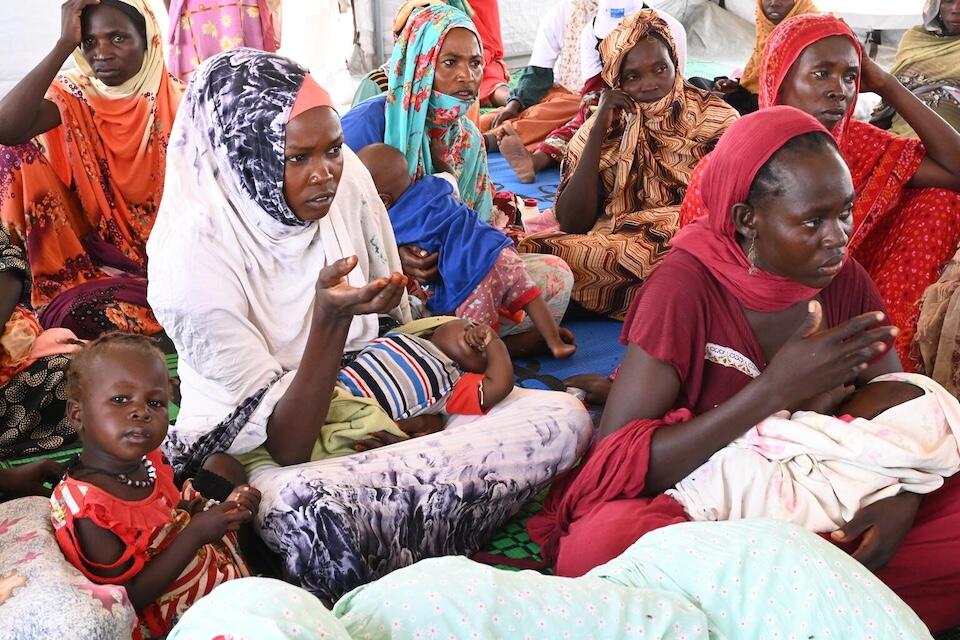
In the case of migrant or refugee children, a lack of a birth certificate can put them at a higher risk of family separation or illegal adoption. These children are also at a much higher risk of statelessness, due to a lack of legal proof of nationality or ties to any country.
The benefits of birth registration also extend to the national level. Accurate population data is essential for governments to assess needs and determine how and where to allocate resources. Without this critical information, countries risk the expansion and entrenchment of social inequities.
What are some of the barriers to birth registration and receiving a birth certificate?
Many factors can keep children from being registered or receiving a birth certificate:
- Poverty: Poor families living in rural areas may have limited access to registration services or can’t afford to travel to registration sites. Associated fees may be cost prohibitive.
- Lack of awareness: Parents may be be unaware of birth registration or the importance of it.
- Marginalization: Members of ethnic and religious minority groups often have lower birth registration rates than the national average. They may live in remote areas or are unrecognized by their governments. Complex and time-consuming birth registration and certificate procedures disproportionately impact vulnerable and marginalized communities.
- Status of women's rights: A mother can face discrimination when trying to register a birth in some countries if she is without identification herself or does not have a marriage certificate. Women may be unable to register their children if the father is not present, unknown or if he refuses to acknowledge paternity. There are several countries where women do not have the same rights as men to legally pass their nationality to their children.
How UNICEF is helping achieve the goal of legal identity for all
UNICEF is dedicated to supporting collective efforts toward ensuring identity for all — including birth registration — by 2030, considered crucial for advancing the overarching Sustainable Development Goal of leaving no child behind.
To that end, UNICEF supports tens of millions of birth registrations every year by easing the process, conducting catch-up campaigns for older children who were missed and leaning into innovative solutions.
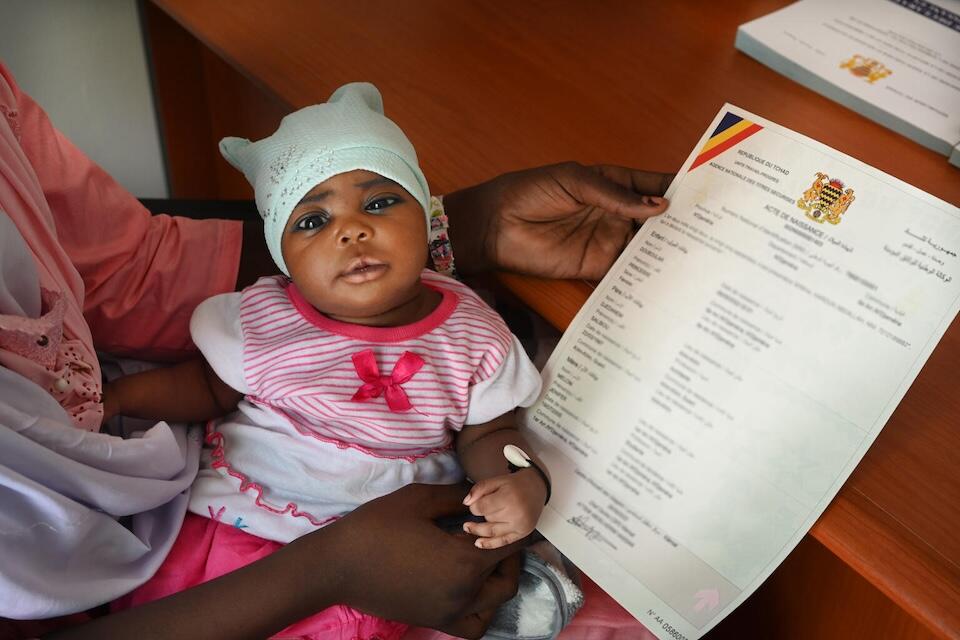
UNICEF partners with governments of countries with low birth registration rates to help improve their civil registration systems. This includes increasing the number of service points where children can be registered, developing or updating birth registration policies, innovations in registration technology and increasing community awareness about the benefits of birth registration.
Alongside partners, UNICEF works to integrate birth registration as part of other sector work: making birth registration routine at hospitals and health centers as babies are born, for example, and registering kids during an immunization drive. Birth registration can also be linked to student databases and national cash transfer systems to capture more people and create a seamless experience.
With UNICEF's help, the global birth registration rate increased from 60 percent in 2000 to 76 percent in 2023. In 63 countries, birth registration is a standard service provided at all public health facilities, and 53 countries have a free and universal birth registration service in place.
Where challenges remain, UNICEF continues to work directly with governments on laws and policies around birth registration and to otherwise strengthen systems to make it simple, accessible and affordable.
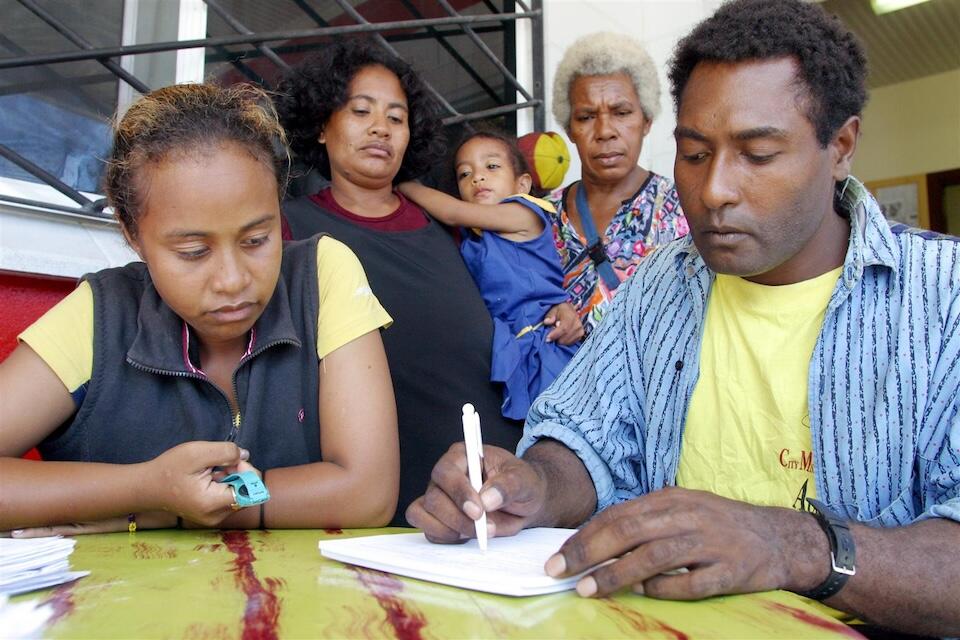
UNICEF works in over 190 countries and territories to ensure every child is healthy, educated, protected and respected. Learn more about what UNICEF does, and how to help.
